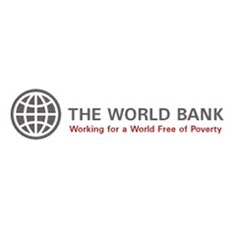 For the past six months, I have been working with the World Bank in both Indonesia and in the US. In particular, I have been looking at the impact of changes to service sector FDI policies on productivity in downstream manufacturing sectors. Today, the fruits of these labours were published as a World Bank Policy Research Working Paper, co-authored with two of my colleagues from the Jakarta office. Continue reading
For the past six months, I have been working with the World Bank in both Indonesia and in the US. In particular, I have been looking at the impact of changes to service sector FDI policies on productivity in downstream manufacturing sectors. Today, the fruits of these labours were published as a World Bank Policy Research Working Paper, co-authored with two of my colleagues from the Jakarta office. Continue reading
Twitter Updates
Tweets by vicduggan-
-
Recent Posts
- Book Review: Beware the lure of post-liberalism
- Book Review: ‘Shared Prosperity in a Fractured World’, by Dani Rodrik
- Book Review: The Land Trap: a New History of the World’s Oldest Asset
- Book Review: Nordic Socialism: the path toward a democratic economy
- Book Review: ‘Burn Them Out! A History of Fascism and the Far Right in Ireland’ by Pádraig Óg Ó Ruairc
Categories
Archives
- January 2026
- December 2025
- August 2025
- April 2025
- October 2023
- August 2023
- July 2023
- June 2023
- May 2023
- April 2023
- March 2023
- February 2023
- January 2023
- December 2022
- November 2022
- October 2022
- September 2022
- July 2022
- March 2022
- February 2022
- September 2021
- July 2021
- February 2021
- June 2020
- March 2020
- November 2019
- September 2019
- August 2019
- July 2019
- June 2019
- May 2019
- April 2019
- March 2019
- February 2019
- December 2018
- November 2018
- October 2018
- September 2018
- July 2018
- April 2018
- March 2018
- February 2018
- December 2017
- November 2017
- October 2017
- September 2017
- July 2017
- June 2017
- May 2017
- April 2017
- March 2017
- February 2017
- November 2016
- September 2016
- July 2016
- May 2016
- February 2016
- November 2015
- September 2015
- August 2015
- July 2015
- May 2015
- March 2015
- January 2015
- November 2014
- October 2014
- September 2014
- July 2014
- June 2014
- May 2014
- April 2014
- March 2014
- February 2014
- December 2013
- November 2013
- October 2013
- September 2013
- July 2013
- June 2013
- May 2013
- April 2013
- March 2013
- February 2013
- January 2013
- December 2012
- November 2012
- October 2012
- September 2012
- August 2012
- July 2012
- June 2012
- May 2012
- April 2012
- March 2012
- February 2012
- January 2012
- December 2011
- November 2011
- October 2011
- September 2011
- August 2011
- July 2011
- July 2010
Blogroll
- CSO
- Debt Deflation
- Economonitor
- ESRI
- Euro-Irish Public Policy
- FT Alphaville
- FT BeyondBRICS
- IMF Data Mapper
- irisheconomy.ie
- Karl Whelan
- Marc to Market
- Notes On the Front
- Progressive Economy @ TASC
- Project Syndicate
- realclearpolitics.com
- Ronan Lyons
- Stephen Kinsella
- The Conscience of a Liberal
- The Money View
- True Economics
- Vox EU
Meta


